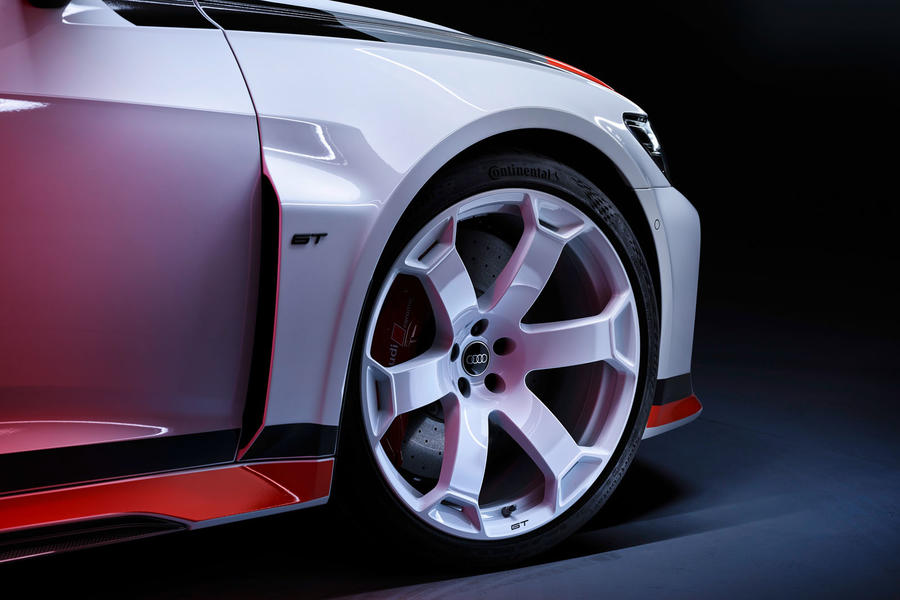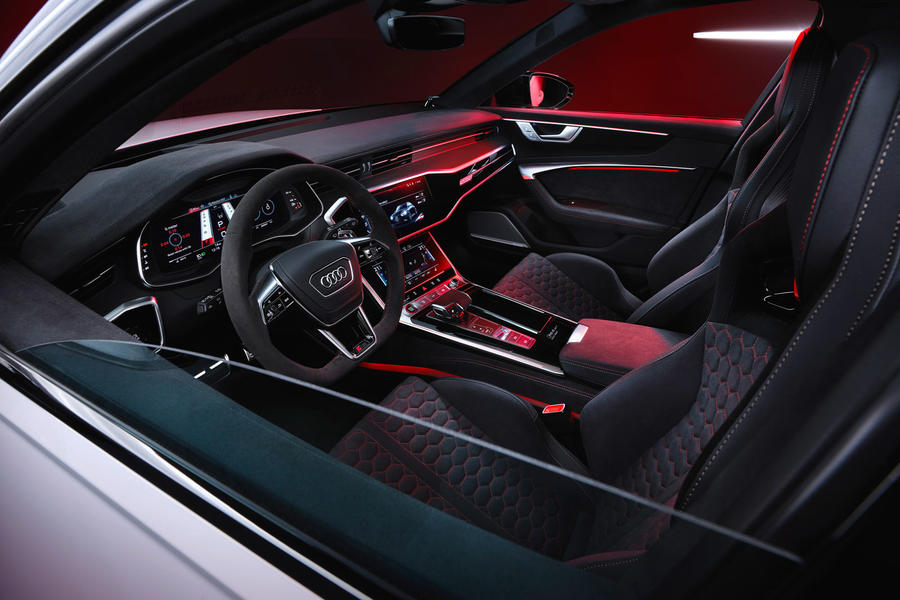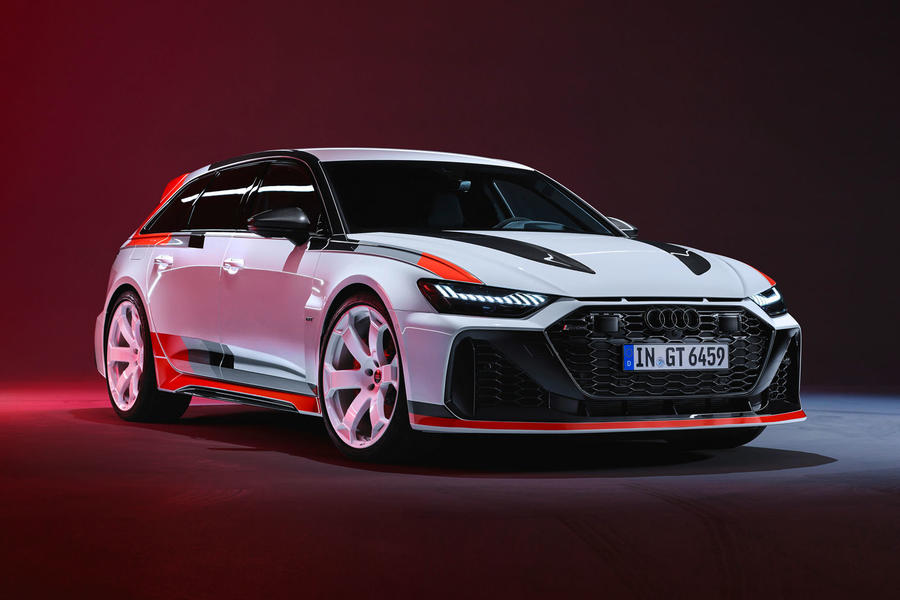Copious use of carbonfibre cuts 0-62mph time to 3.3sec
Swathes of carbonfibre make 621bhp bruiser 11.5sec quicker in the 0-125mph sprint
Audi has unveiled the RS6 GT as a limited-run celebration of its V8 super-estate, as it embarks on a wide-reaching electrification programme.
Complete with performance-enhancing aero tweaks, bespoke carbonfibre body panels, an outlandish retro livery and a marked price increase over the standard car, the special edition will be limited to just 660 examples worldwide, 60 of which will be sold in the UK.
The model is effectively a road-legal evolution of the radical RS6 GTO concept – created in 2020 by a team of Audi apprentices with inspiration from the firm’s legendary 1989 IMSA GTO race car – and is based on the top-rung Performance version of the RS6.
Autocar exclusively revealed last year that a “more extreme” RS6 was inbound after then Audi Sport boss Sebastian Grams told us: “We can go even further. We can make the car even stronger, even more performance, even sharper…”
Speaking at the car’s launch, Audi Sport managing director Rolf Michl told Autocar that when the 2020 concept was revealed, it was not guaranteed to become a production car.
He said: “Every RS has to fulfil a certain role, so internally it was a really tough discussion for us. The commitment was that we have to stick as close as possible to the GTO concept but always reflect the characteristics of an RS.
![]()
“Then the team had to work as quickly as possible because even doing things like a carbonfibre bonnet or fenders, it is huge.”
Michl stopped short of confirming whether this is the last V8-powered car from Audi Sport, but he went on to explain that it was more a “showcase of new materials” than a “final vision” for the firm.
For example, it is the first Audi to use carbonfibre for the bonnet and wings and also employs this material on its wheels.
Michl said: “We wanted to showcase [new materials] because carbonfibre is one of the basics in racing and the reduction of unsprung masses is always an aim. So with that, we just wanted to show how we could even improve a car with several attachments and make technology visible.”

The RS6 GT is designed to look as close to the GTO concept as possible. It comes with a bespoke livery in two “one-of-a-kind” paint finishes: one in white, grey and red with white wheels, and the other in grey and black.
It also employs several aero revisions to contribute to a slight overall increase in performance, such as a motorsport-inspired double wing, a prominent and functional rear diffuser and a more aggressive front splitter. The roof rails have been removed, too.
The 22in wheels are also aero-optimised and ‘RS6 GT’ is inscribed into them, as it is on various parts of the interior, including the armrest and seatbacks.
The seats are upholstered in suede-like Dinamica and there is red and bronze stitching on the seats, steering wheel and floor mats. The interior also has a plaque denoting which model number the customer has chosen.

Michl explained the motivation behind bringing the concept to showrooms: “We got a lot of feedback from customers that our show cars never touched the road and we were amazed by what the apprenticeship guys did with the RS6 GTO concept.
“So it’s not to do with a final vision. It’s really to have something special and we know we have existing RS customers searching for another pinnacle.”
Each car will be powered by the same 4.0-litre twin-turbo V8 as the regular RS6, still pumping 621bhp and 626lb ft to both axles. However, lightweight materials and aero tweaks reduce the 0-62mph time to 3.3sec and 0-125mph now takes 11.5sec – 0.1sec and 1.5sec quicker respectively. Its top speed is limited to 190mph.
The suspension and rear differential have been reworked to make the car more agile when in Dynamic mode, with the coilovers lowered by 10mm and stiffened over the standard car’s.
The RS6 GT is expected to cost around £180,000 and deliveries will begin in the second quarter of this year.
Q&A: Rolf Michl, managing director, Audi Sport

What will be the priority for future RS cars? Speed? Driving feel? Sound?
“It depends on the car, so there will be more driving dynamics-oriented cars, depending on the size. I couldn’t give you one direction but we want in the future to offer the biggest package of versatility.”
What would you say to customers wary of an electric RS car?
“I think there’s a path we can take together with customers. We’re looking car by car and we have a close view of the usage profile. We will go hybridised and you will see that people will be happy about the additional value for it being electrified. We will do it step by step.”
How are you going to differentiate each model in the future?
“The USP will change all the time. For example, it has been sound or battery tech over the last 20 years. This has already changed and will further change. Going to driving dynamics, we have totally different options in the future. I think with EV tech, we can change the drivetrain set-up.”
Source: Autocar